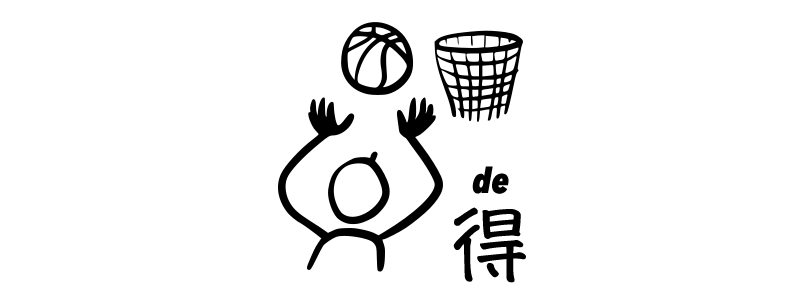Grammar Point:
The verb modifier 得 de comes between the verb and the complement, describing the result or state of the action represented by the verb.
Structure
V + 得 de + Adj.
In Mandarin Chinese, the results always come after the actions.
你走得很快你走得很快
You’re walking fast.
他睡得非常好他睡得非常好
He slept very well.
媽媽說得不清楚妈妈说得不清楚
Mom didn’t speak clearly.
你做得很好你做得很好
You did very well.
賣得不太好卖得不太好
Not selling well.
Adding details
There are three ways you can add an object to your sentence. Regardless of which one you choose, always make sure that 得 de is placed after the verb it modifies, not the object of the verb.
1. < O,S + V + 得 + Adj. >
This form is for spoken language not written language.
中文,他說得很好中文,他说得很好
He speaks Chinese very well.
字,你寫得很難看字,你写得很难看
Your writing is very difficult to read.
飯,媽媽做得很好吃饭,妈妈做得很好吃
Mom’s cooking is very good.
書,我看得非常慢书,我看得非常慢
I read books very slowly.
2. < S,O + V + 得 + Adj. >
This form is also for spoken language not written language.
他,中文說得很好他,中文说得很好
He speaks Chinese very well.
你,字寫得很難看你,字写得很难看
Your writing is very difficult to read.
FYI
In China, we have this awesome tradition of teaching children to write characters beautifully. It’s like unlocking a secret window into their personality! We believe that handwriting can reveal so much about a person. It’s not just about the words on paper; it’s a reflection of their inner self. This belief is deeply rooted in our rich Chinese culture, where calligraphy is treasured as both an art form and a way to express oneself. The coolest thing is that by practicing and mastering the art of writing characters, kids can develop some amazing qualities like discipline, patience, and a keen eye for detail. It’s like a superpower that helps them grow into awesome individuals!
媽媽,飯做得很好吃妈妈,饭做得很好吃
Mom’s cooking is very good.
我,書看得非常慢我,书看得非常慢
I read books very slowly.
3. < S + 的 + O + V + 得 + Adj. >
This is one of the common ways to use it, but when you use it, sometimes the meaning can change, especially when the object is not a skill or ability.
他的中文說得很好他的中文说得很好
He speaks Chinese very well.
你的字寫得很難看你的字写得很难看
Your writing is very difficult to read.
媽媽的飯做得很好吃妈妈的饭做得很好吃
Mom’s cooking is very good.
我的書看得非常慢我的书看得非常慢
I read books very slowly. ✅
I read my book very slowly ✅
4. < S + V + O + V + 得 + Adj. >
We repeat the verb much less frequently in our daily life conversations compared to the above three. On the other hand, this expression is the most formal and clear, with almost no ambiguity present.
他說中文說得很好他说中文说得很好
He speaks Chinese very well.
你寫字寫得很難看你写字写得很难看
Your writing is very difficult to read.
媽媽做飯做得很好吃妈妈做饭做得很好吃
Mom’s cooking is very good.
我看書看得非常慢我看书看得非常慢
I read books very slowly.
Common Mistakes
他說中文得很好他说中文得很好 ❌
(“得 de” should always placed after the verbs.)
他說中文很好他说中文很好 ❌
(Don’t forget to use “得 de” to link the verbs and adjectives.)
我做飯做得很難我做饭做得很难 ❌
(This sentence actually means “I make cooking (the process of making food) difficult.” You can see all the examples I provide above; they all talk about “the actions” being “adjective” because of “the subject.”)
Confusion
In Mandarin Chinese, there is a structure called “Topic and Comment.” This is where Chinese learners often get confused because the particle 得 de is missing.
| Topic | Comment |
| 學中文学中文 | 超級難超级难 |
| 你寫字你写字 | 真漂亮真漂亮 |
| 她看書她看书 | 很慢很慢 |
Practice
TouchHover over the space to see the answers.
✔️ She drinks a lot of wine.
她酒喝得很多她酒喝得很多
✔️ You learn Chinese too fast!
你的中文學得太快了你的中文学得太快了
✔️ You change boyfriends faster.
你換男友換得更快你换男友换得更快


